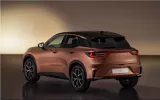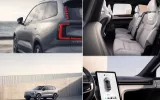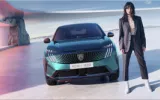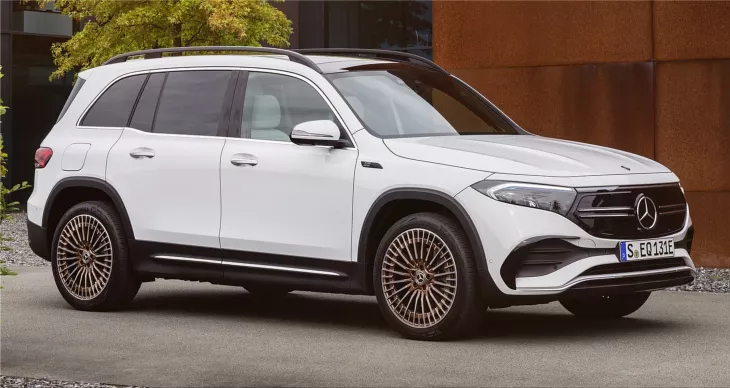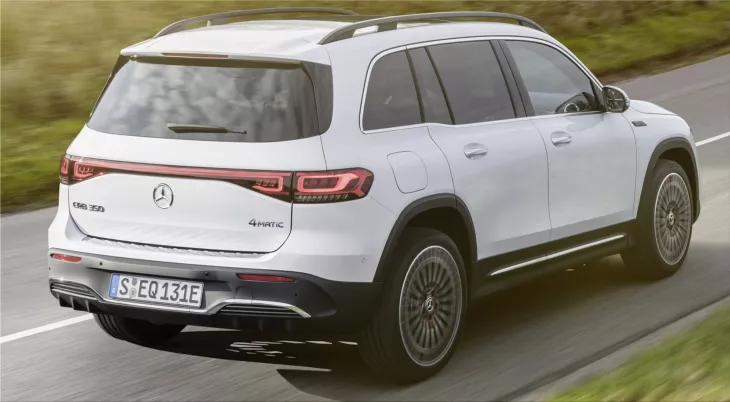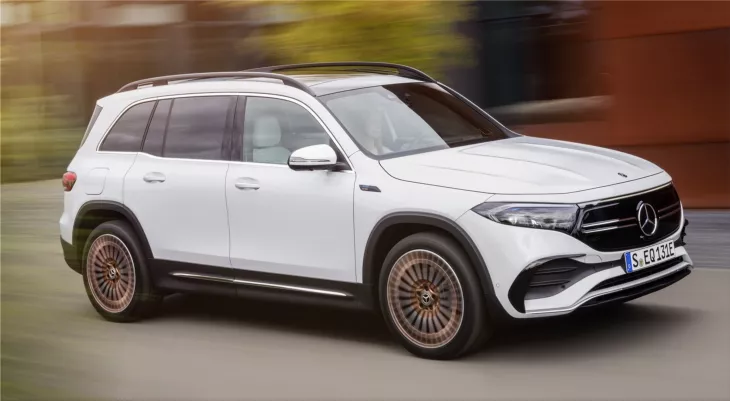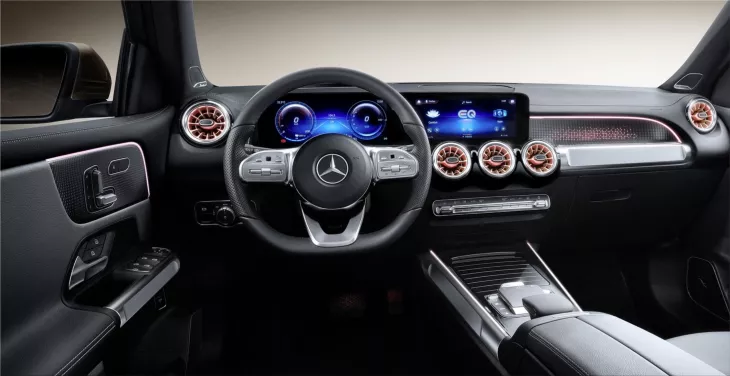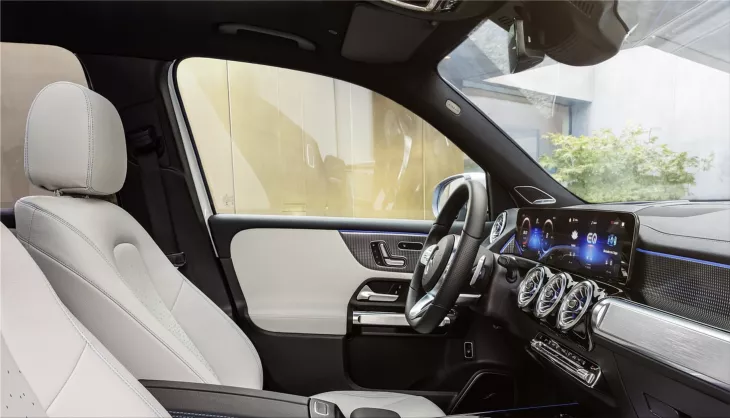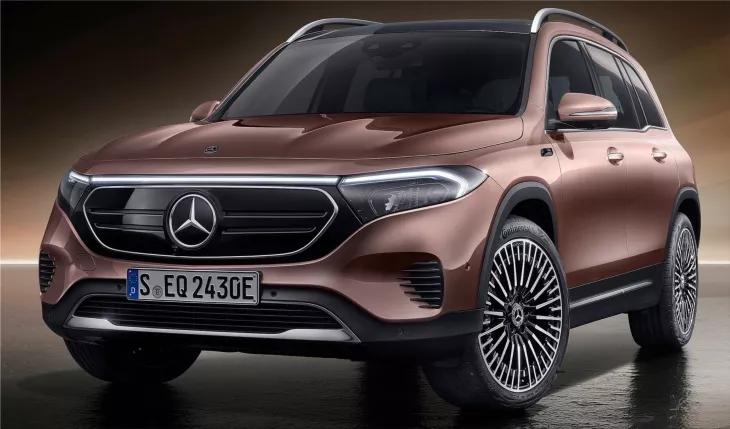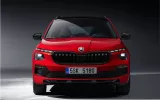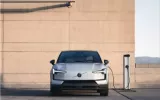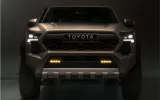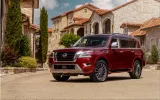Frank Kemmerer, Head of Fleet Management at Mercedes-Benz, spoke with FUHRPARK & MANAGEMENT about online ordering options for commercial customers, the effects of the chip crisis on delivery times, and positioning of the Mercedes-Benz brand, and the opportunities for electromobility for fleet and commercial customers.
Mr. Kemmerer, the pandemis crisis is leading to increased online communication. How does this affect customer contact at Mercedes-Benz?
Frank Kemmerer: In communicating with our customers, we rely on a hybrid model. Of course, digital customer contact has also become standard for us. We have found that customer care can be made even more efficient for both sides by eliminating travel times. At the same time, however, we will continue to maintain physical contact with our customers where it is safe and sensible. Our local trade is and remains the most critical pillar of our business. But we have not only become more digital in terms of communication: As part of pilot projects, we are now also offering commercial customers the opportunity to order vehicles directly on the Internet via our online store. In the past, this option was only available to private customers. With this online offer, we meet the customer's wish to carry out ordering processes entirely digitally. The vehicle will then be delivered as usual on-site at our trading bases.
Which commercial target groups are you focusing on in these pilot projects?
Kemmerer: In the first step, we connect selected, smaller companies. Of course, we also want to integrate larger vehicle fleets later. However, it will be necessary to store the individual customer profiles in the system, which is then much more complex for larger companies.
Which vehicles are available online for commercial customers? And at what prices?
Kemmerer: Basically, the range of our online store covers the entire portfolio, with all segments and drive types. As in the private customer business, we also offer preconfigured vehicles available at short notice to the commercial target group. This is another aspect that makes ordering vehicles in the online store attractive. There are no special conditions for online orders. No matter which contact point the order is made through, the customer always receives the same price.
With a view to the current lack of chips: How long are Mercedes-Benz customers currently waiting for their vehicle?
Kemmerer: As is known, there are currently restrictions on the range of equipment for various series due to the effects of the current global supply bottleneck for specific semiconductor components. Unfortunately, this also results in delays in vehicle delivery. Our delivery control is currently flexible to limit our customers' waiting time as best as possible.
Do you have any configurations that lead to particularly long delivery times?
Kemmerer: Basically, delivery times vary depending on the series and equipment of the individual models. We are continuously monitoring and evaluating the situation, also in close cooperation with our suppliers. Regardless of the model, we consider how long a customer has been waiting for their vehicle and try to prioritize accordingly. Nevertheless, the handover to the customer is heavily dependent on the individual equipment and the short-term availability of parts.
Do you currently have specific equipment options blocked?
Kemmerer: As already mentioned, equipment restrictions are currently in various series, resulting in delivery delays. However, suppose customers insist on a car with their desired equipment even with an extended delivery period. In that case, they are, of course, free to wait for the vehicle they have ordered until it can be delivered in the desired configuration.
Do you differentiate between conventional combustion engines, plug-in hybrids, and purely electric cars in your purchasing conditions for fleet and commercial customers?
Kemmerer: No, the conditions for our vehicles are designed independently of the respective drive type. Other factors, such as the purchased quantity, influence the customer's requirements.
In 2022, the EQE will be the first fully electric vehicle in the traditional business sedan segment. How do you differentiate the target group from the E-Class?
Kemmerer: We are continuing our electric car offensive here. After the EQS, the EQE is already the second model on our new platform for electric vehicles in luxury and upper class. With the EQE, we can now offer a fully electric business sedan for the first time and thus reach customers for whom we previously had no suitable product in our portfolio.
What hurdles do you currently see for companies that make it challenging to use electric mobility in practice?
Kemmerer: We can now report on several customers who have entirely converted their fleet to electric vehicles. The increasing ranges mean that these models fit more and more driving profiles. In addition, the quick charging times of our vehicles are becoming shorter with each new generation, and we cover complete access to the charging infrastructure, including billing for the charging process, with our services. This means that electric cars in everyday life are becoming more and more convenient for drivers. We, therefore, no longer see any real restrictions of the kind that might have existed some time ago.
Mercedes-Benz recently presented its EQXX study, which can drive 1,000 kilometers on one battery charge. So when will field workers on long-distance trips be able to switch to electric cars without hesitation?
Kemmerer: You can already do that today without hesitation. You can use intelligent route planning that includes charging processes in the day, such as at the fast charging station or the customers. Electric mobility is already a viable option for frequent drivers. Also, technical assistants in the vehicle support the driver more and more, such as our navigation system with "Electric Intelligence," which plans the fastest and most comfortable route, including charging stops dynamically and based on numerous factors. With our "EQ Ready" app, companies can quickly check whether switching to a purely electric vehicle or a hybrid model is practicable for their driving profile. Incidentally, the analyzes show.
If we look at the vehicles outside the EQ series: What innovations are you planning for 2022?
Kemmerer: I don't want to reveal too much at this point. In any case, the diesel plug-in hybrid in the C-Class will be relevant for the fleet, which then also has a purely electric range of over 100 kilometers like the C 300e with plug-in Hybrid and state-of-the-art four-cylinder petrol engine.
The Mercedes-Benz brand intends to position itself more strongly in the direction of luxury in the future. What are the implications for fleet and commercial customers?
Kemmerer: First of all, it must always be taken into account that the term "luxury" has the meaning for us in the company as it is understood in Anglo-Saxon language: For us, luxury describes a subjective feeling that is caused by experiences and products. We want to offer our customers something special, and in this sense, Mercedes-Benz stands for luxury in terms of technology, quality, comfort, design, safety, and sustainability. It's about the emotions and the sharpening of brand values. And that is possible in every segment, from the compact to the luxury class.
Reports about the end of the combination are purely speculative
However, your station wagons, the station wagons, are on the brink if you trust the relevant media reports.
Kemmerer: The report you are referring to here is purely speculative. The station wagons have a long tradition in the model history of Mercedes-Benz and are particularly popular on the German market. With the current C-Class, we are also offering an all-terrain version for the first time. The station wagon is also an integral part of the planning for the upcoming E-Class from 2023.
Purely electric station wagons are planned for the foreseeable future?
Kemmerer: Our goal is and will remain emission-free mobility. By 2039, our ambition is an entirely CO2-neutral new car fleet. As early as 2025, all new vehicle architectures will be all-electric, and customers will choose all-electric alternatives for each model. We already offer purely electric Mercedes EQ models such as the Mercedes-Benz EQB or the Mercedes-Benz EQC in our portfolio, which also have the variability and space of classic station wagons.
You recently merged the "Mercedes Me" offering for private and commercial customers. What effects does this have on the scope of the offer for commercial customers?
Kemmerer: With "Mercedes Me," we now have a system to offer private and business customers vehicle-related services. We also used this step to migrate our solution for the van area "Mercedes Pro." In addition, the Connect services for providing data interfaces for larger fleets are mapped via "Mercedes Me." "Mercedes Me" thus offering a complete ecosystem that private individual customers can use up to the largest fleet. In addition, the service portfolio has not changed due to the merger of the services. However, Independent of "Mercedes Me," we have a new service for fleet customers with the Mercedes-Benz "Fleetshare App."
Mr. Kemmerer, thank you very much for the interview.

